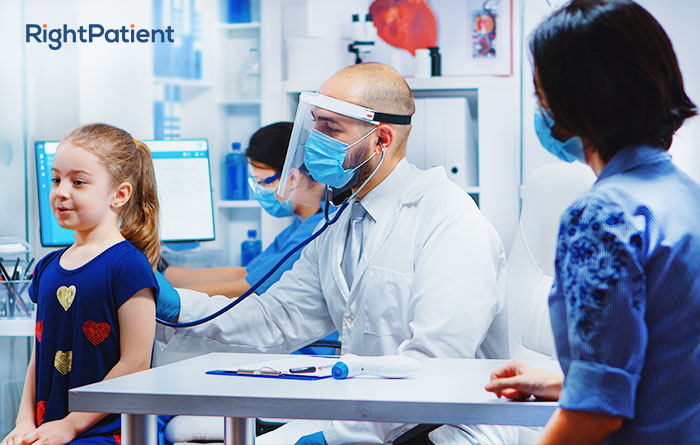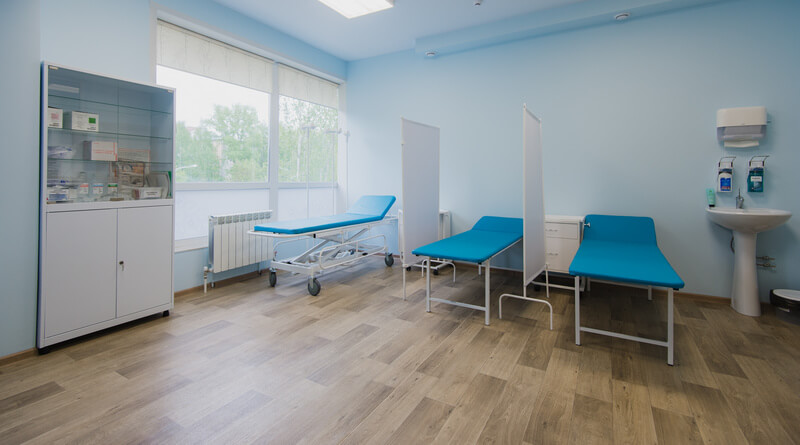3 Patient Safety Measures Hospitals Must Take in a Post-Pandemic World

COVID-19 has changed reality for us – it has changed the way we lead our lives. Sanitizers, masks, and social distancing have become quite integral parts of our daily lives now. Wherever we go, social distancing practices are encouraged for a safer environment. However, it has shaken the healthcare systems of the world to their core, especially that of the U.S. With the highest number of cases in the world (as of now), hospitals are slowly opening their doors for regular patients. Keeping that in mind, hospitals must take patient safety measures while they are opening to ensure that patients receive care in a safe and hygienic environment. Let’s take a look at some common steps hospitals can take to prevent patient safety issues.

Some insightful statistics
According to a survey by Sage Growth Partners, 24% of the respondents (healthcare professionals) believe that issues such as disparate EHRs and lack of actionable data at the point of care lead to patient safety issues.
Improving patient safety is also among the top three priorities of the respondents, besides delivering high-quality care and increasing efficiency and reducing costs – all of which can be done by ensuring accurate patient identification (more on that later).
Let’s explore what kind of patient safety measures will help hospitals enhance patient care.
Patient safety measures that can help enhance patient care
Planning everything well in advance
While many might think that everything is slowly returning to normal, it’s quite the opposite. Working from home is still being utilized by most organizations, social distancing is still being practiced, and wearing masks and sanitizing regularly are still highly encouraged.
Since hospitals are opening slowly, they should plan every step carefully along with contingencies while keeping worst-case scenarios in mind. Hospitals need to plan the opening days and rather than opening the whole facility at once, they should open in phases. This will help reduce the risk of any mass outbreaks of COVID-19 – managing a mass outbreak at a single location will be much easier than managing outbreaks at all the facilities.
Also, hospitals should decide at what capacity will they operate and the duration for that testing phase. If all goes well, they can slowly increase the capacity of patients they will be serving.

Finally, the inventory required for all of the above needs to be planned to ensure that the necessary materials are available at all times. For instance, PPE has become quite critical, and these should be ordered well in advance before the stock runs out within the facilities. Thus, instead of reordering the materials when they’re at 30%, they should be reordered at, say, 45% – these are essential materials, after all.
Enforce safety measures for everyone
It goes without saying that every individual must practice a minimum level of social distancing to help themselves and others stay safe from the novel coronavirus. Sadly, not everyone follows that. Thus, the hospitals must enforce that everyone within the facility must follow the social distancing rules to a T. Not only is this one of the most common patient safety measures, but it also enhances safety for the physicians, nurses, and every other healthcare staff.
Keep brightly colored posters in places where they will catch everyone’s attention. Place stickers on the floor with six feet between them to show where patients or caregivers must stand, especially in busy places like registration desks. Make sure that everyone is wearing masks and that sanitizers are available everywhere. Keeping the facilities hygienic is crucial to enhance patient safety.
Ensure accurate patient data
One of the most crucial factors that make or break patient safety is patient data, as the former is heavily reliant on the accuracy of patient data. Imagine this, if the patient is treated based on inaccurate patient data, they will face delayed or incorrect medications, leading to poor healthcare outcomes. One of the most common ways patient data gets corrupted is via duplicate records.
If a patient has multiple records, there are high chances that the registrar will select the one with inconsistent or fragmented data, leading to adverse outcomes. Thus, ensuring that patient data integrity is maintained at all times is crucial for improving patient safety. Fortunately, RightPatient does all that – and more.
RightPatient is the leading patient identification platform used by healthcare providers like Terrebonne General Medical Center, Grady Health, and Catholic Health of Long Island. With a robust photo-based engine, it ensures that the patients are identified accurately at all times across the care continuum, helping patient data integrity by avoiding duplicate medical records. Moreover, it ensures that the patients are who they say they are and not impostors, preventing medical identity theft in real-time.
Finally, a platform like RightPatient is critical in a post-pandemic world because it is entirely touchless. Thus, it helps caregivers and patients operate in a hygienic environment by preventing infection control issues.
Use RightPatient now and enhance patient safety at your facilities, prevent medical identity theft, and prevent duplicate medical records – enhancing patient data integrity along the way.









Leave a Reply
Want to join the discussion?Feel free to contribute!